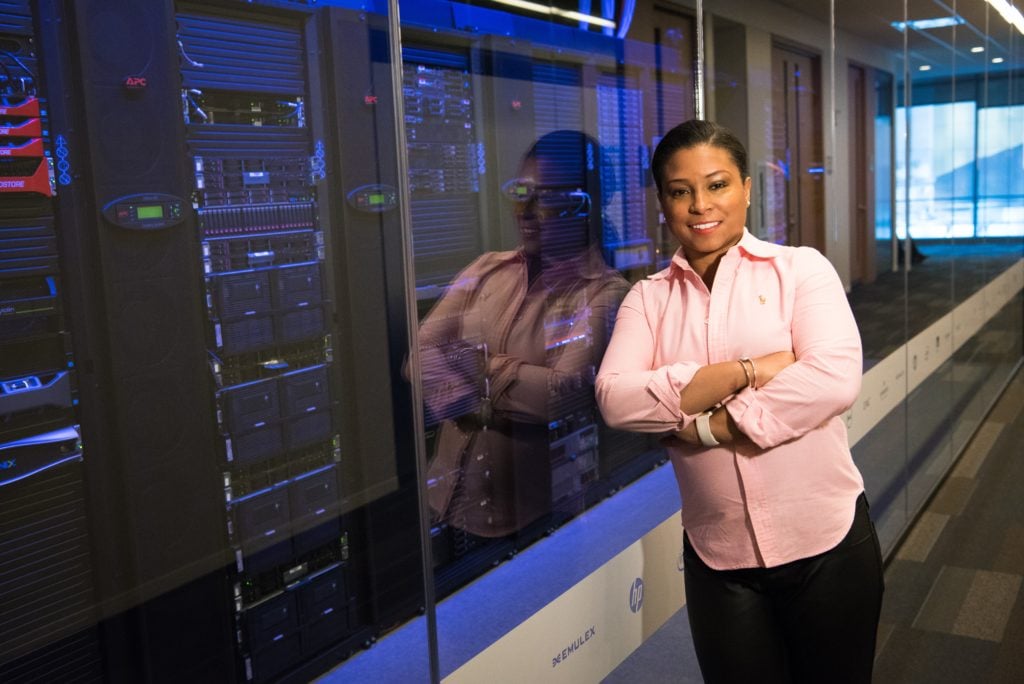How inclusive communication can triple your qualified applicant pool
Studies show that companies are struggling with getting enough talented applicants. In particular, Denmark will be missing 19.000 IT specialists in 2030, thus costing them huge losses in GDP. Today, IT companies are spending a collective €14 billion extra in hiring costs a year due to the lack of available talent. All the while, 75% of tech-educated women and 90% of tech-educated people from an underrepresented ethnic background do not pursue a tech position.
In addition, employee turnover is between 2 to 3.5 times higher when it comes to these groups compared to the represented population. This is not only costing economic loss for these companies, but it is also hindering innovation through failing to attract a diverse workforce. McKinsey & Co. have demonstrated that diverse and inclusive workplaces are more innovative, perform significantly better, have a better chance to be profitable and have higher employee engagement and retention.
Inclusive communication brings you 3 times more qualified applicants
By implementing inclusive language in job adverts, our customers have seen a significant increase in the number of applicants—especially diverse and qualified candidates.
In particular, Amazon has got 3 times more qualified applicants and closed the gender gap in their qualified pool by getting both more qualified women and more qualified men from more diverse ethnic backgrounds. Furthermore, TDC Group has got 2 times more female applicants, resulting in a gender-balanced candidate pool - and more qualified applicants.
Yes, inclusive language can increase your qualified applicant pool three times and can help close the gender gap in your hiring. Thus, demonstrating the power of language.

Women are ambitious and men are caring
How can inclusive language have such an enormous effect? It’s quite simple: inclusive language doesn’t discourage talent due to their social groups, such as gender, age or ethnicity. Quite the opposite, actually. It increases people’s feeling of belonging to that workplace and their appeal to work for that company. Inclusive language doesn’t carry the connotation of societal stereotypes, which are still deeply and often covertly rooted in our society and affect us on an unconscious level. When it comes to language, it has been scientifically demonstrated, that agentic language (e.g. ambitious, competitive, bold) and communal language (e.g. caring, compassionate, humble) discourage people differently depending on the gender of the reader.
For example, if a job description carries too much agentic or communal language, it can stop a woman from pursuing a leadership position, and it can also stop a man from seeking the position of his dreams. According to these researchers, this happens because, even though both women and men have agentic and communal traits, meaning that both are ambitious and caring, they do not feel represented by the same traits equally. This is mainly caused by the internalized stereotypes and beliefs they picked up from society during their childhood and adulthood, and by the backlash they experience when embodying counter stereotypic traits.

And it goes beyond that, still. New evidence suggests that a focus on agentic and communal values doesn’t only affect people according to their gender, but also according to other social groups they may belong to, such as ethnicity and age. Therefore, if our purpose is to attract and retain more diverse and qualified applicants, we need to start using inclusive language.
Behavioural change is triggered when we move from unconscious action to conscious thinking. Solutions like our AI Smart Editor, help people become conscious of our unconscious bias so we can change it.
Science instead of personal feelings
At Develop Diverse, our team of linguistic and communication specialists has been digging deep into scientific research on inclusive language - validating and expanding on studies from the past decade. Our mission? To make these insights accessible to companies and individuals through our software, helping them make informed choices about the language they use in recruitment.
Think of it like a spell-checker, but instead of just catching grammar mistakes, it flags words that might unintentionally discourage qualified candidates. We highlight these words, explain their potential impact, and let users decide whether to swap them for more inclusive alternatives. A small language tweak can make a huge difference in attracting diverse talent!
Start getting more qualified applicants today 🚀
You May Also Like
These Related Stories

How to measure the impact of inclusive communication in workplaces

The science behind unconscious bias: How it impacts diversity and inclusion
